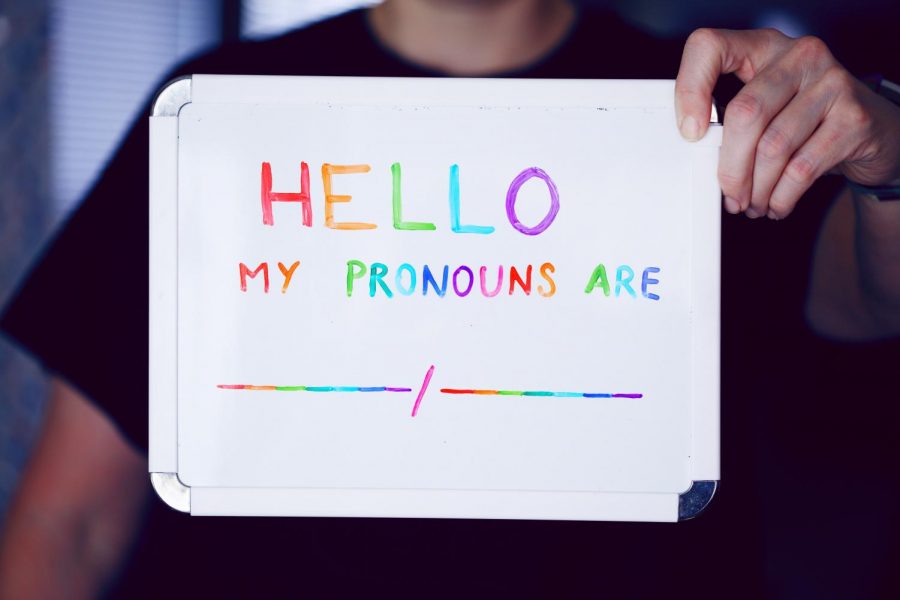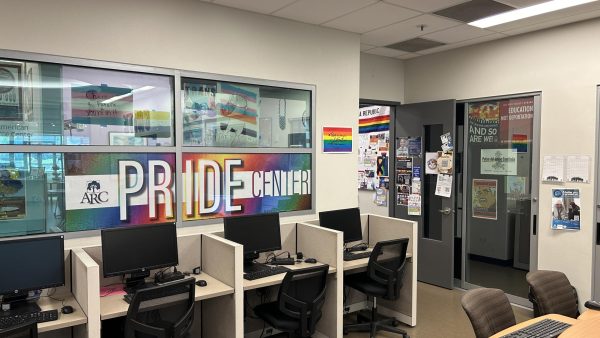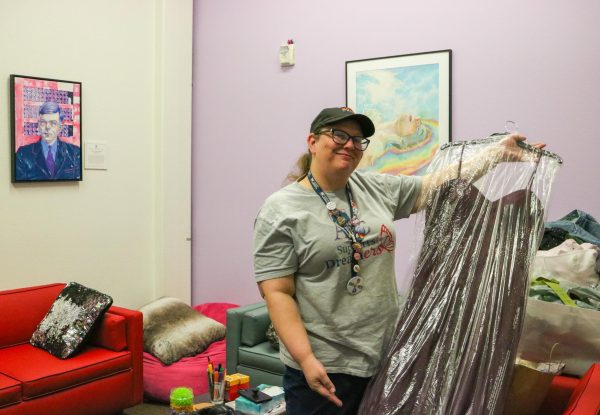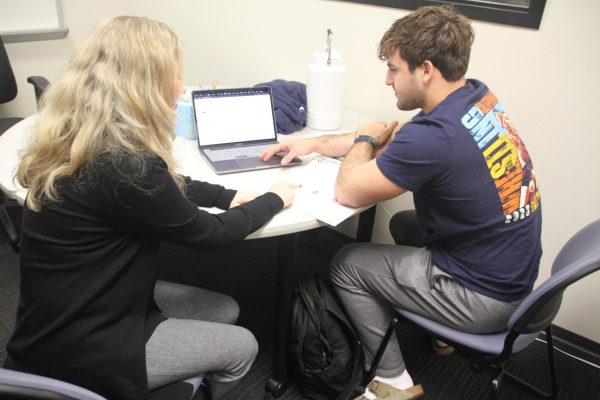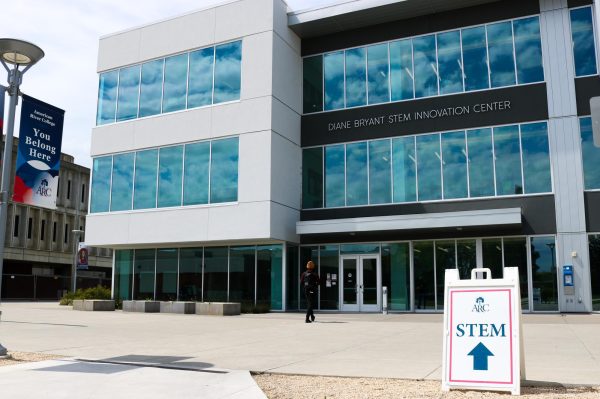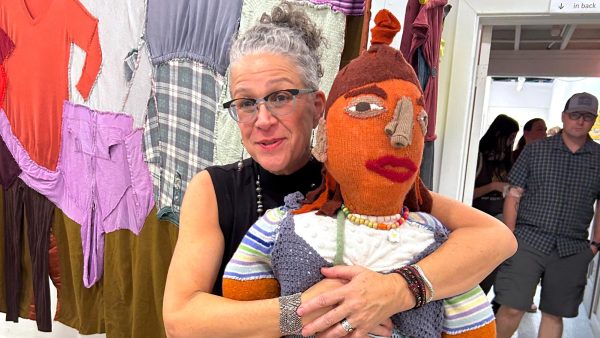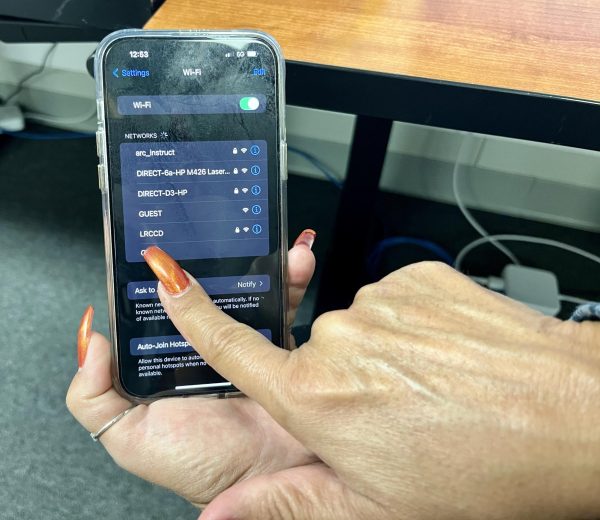Understanding and respecting the pronouns of others is fundamental
“People should have the autonomy to name themselves”
Understanding that a person’s pronouns may change over time, or may be fluid, meaning they change regularly depending on the day, can help to ensure you treat everyone around you with the utmost respect and understanding. (Photo via Unsplash)
Respecting other people’s pronouns is fundamental for developing professional and personal relationships. Understanding that a person’s pronouns may change over time, or may be fluid, meaning they change regularly depending on the day, can help to ensure you treat everyone around you with the utmost respect and understanding.
Everyone uses pronouns, however, in school, transgender and gender non-conforming people are often forced to worry about them more often as their pronouns may not be respected by classmates or professors.
As of Oct. 2020, all students and employees within the Los Rios Community College District have been able to indicate their pronouns on Canvas, eServices, Zoom and on official class rosters, according to previous reporting done by the Current, but that doesn’t mean they are respected or understood by all in the Los Rios community.
On April 27, Jaidan Lujan, social justice major and student worker for the American River College Pride Center held a workshop entitled, “Understanding Pronouns”, in which they explained the nuances and importance of correctly using pronouns and neo-pronouns.
“It’s important to respect people’s pronouns and educate yourself or others, which is definitely part of being a good ally,” Lujan said. “It’s really disrespectful to use the wrong pronouns for someone or misgender them, so just use the correct pronouns, and I say correct rather than preferred because it’s not a choice, is a sign of basic respect and human decency.”
Lujan said that if you don’t know someone’s pronouns you should always offer your pronouns first upon meeting them and then ask for theirs. Lujan added that most non-binary people identify with the pronouns they/them, though any pronoun can be used by any person, so it is always best to ask first.
In cases where someone used to go by different pronouns, Lujan said to always use current pronouns and the person’s current name even when talking about the past. They added that if they did something while being perceived one way you should not call them by the way they are perceived by others, you call them by the pronouns that they identify with.
According to Lujan, the biggest area where people tend to misunderstand pronouns is during the conjugation of the words, which refers to the different forms of the pronoun as they are required for communication. The most common pronoun conjugations are he/him/his/himself, they/them/theirs/themself, and she/her/hers/herself.
Lujan said that many nations all over the world are undergoing pronoun shifts in language, many of which include neo-pronouns, or new pronouns that have been created within the past 100 years. English neo-pronouns include, but are not limited to, xe/xer/xers/xerself, xe/xem/xyr/xyrself, and zi/zir/zirs/zirself.
Lujan added that correctly gendering people can also be a safety issue, as misgendering someone may “out” them, or expose them to people who may commit violence against them for living their truth.
“Unfortunately, trans people are more likely to be attacked, especially trans women of color,” Lujan said. “You can out someone if you use the wrong pronouns and that can put them in an unsafe place physically, or it may cause them to lose their housing.”
College can be tough enough without having to worry about your perceived gender not matching your gender identity, according to Lujan.
“It feels nice to be, to be seen correctly. Especially since we’re in a learning environment, being at a college, you want to focus on your schoolwork,” Lujan said. “It could be hard to do that if you’re too busy, just fighting to be seen correctly and that can have a really negative impact on a student’s being, it’s very distracting, it’s very discouraging, and it’s disrespectful.”
ARC Pride Center Coordinator, Alejandra Garcia, said that they think it is time for a shift in culture allowing people to fully express themselves as who they are rather than projecting on people who we think they are.
“People should have the autonomy to name themselves,” Garcia said. “I hope that one day [asking someone’s] pronouns is as much of a practice as asking someone’s name.”
It is only human to make mistakes once in a while, but when the mistake is misgendering someone, according to Lujan, it is best to briefly apologize, not center your own feelings and move on as if it never happened.
If you find that you are still having trouble getting people’s pronouns right, there are many resources available to help you. Not only are there many books, blogs, and forums that you can read in order to get a better understanding, there is even an online game that allows you to practice conjugating and pronouncing different pronouns, including neo-pronouns, which can be played here.
Anyone who feels like they need help or support is encouraged to reach out to the ARC Pride Center, the Sacramento Gender Health Center, or the Trans Lifeline, a hotline that offers 24/7 support in both English and Spanish.

